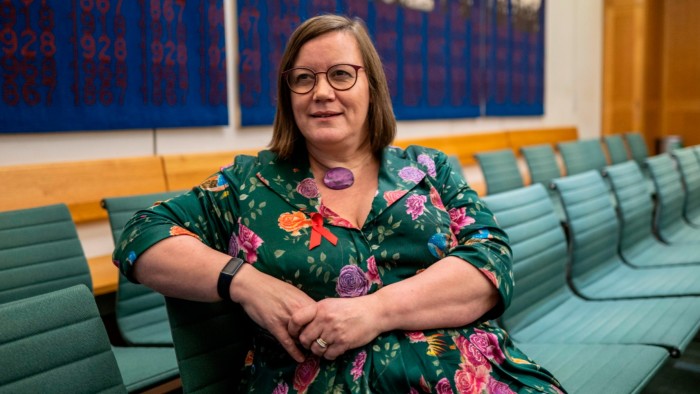Stay informed with free updates
Simply sign up to the UK financial regulation myFT Digest — delivered directly to your inbox.
MPs should look into the phenomenon of social media “finfluencers”, as they seek to protect consumers from ill-advised investments, the new chair of the Treasury select committee has said.
Dame Meg Hillier, a Labour MP, wants to invite social media personalities who peddle investment schemes or offer financial advice online for an evidence session, to understand how they operate within existing regulation.
The topic is likely to be raised during a hearing with Financial Conduct Authority chief executive Nikhil Rathi on Tuesday.
In May, the watchdog charged nine people — including several former stars of reality television shows Love Island and The Only Way is Essex — with promoting an unauthorised financial trading scheme to their combined 4.5mn social media followers.
“People are worried that people are getting their information from some of those sources,” Hillier told the Financial Times. “This goes back potentially to financial education for young people. It is about the risk appetite, which is a big issue that is being discussed.”
There was a difference between people turning to specialists such as Martin Lewis, the founder of the Money Saving Expert website, and “some random on TikTok”, she added.
The FCA been trying to crack down on “finfluencers” who use social media accounts to promote financial schemes or businesses. The regulator set out guidance earlier this year on financial promotion on social media in an effort to “address emerging consumer harm we’ve seen arising from the use of social media”.
The regulator has pledged to clamp down on people it has not authorised who are “unqualified to be giving financial advice to the younger and often very impressionable age groups who follow them”.
Since May’s action, the regulator has interviewed 20 finfluencers under caution and issued 38 alerts against social media accounts operated by them which it said “may contain unlawful promotions”.
Communicating unauthorised financial promotions is an offence under the Financial Services and Markets Act 2000 that is punishable upon conviction by a fine and or up to two years’ imprisonment.
Steve Smart, joint head of enforcement at the FCA, said last year that finfluencers “need to check the products they promote to ensure they are not breaking the law and putting their followers’ livelihoods and life savings at risk”.
Hillier said it was “very early days” when it comes to examining whether regulation needs to be tightened, but she wants to examine the topic in the context of the government’s plans to clarify what counts as financial advice and informal guidance.
Similar concerns could exist in the realms of artificial intelligence, she added. While online platforms could be a useful place to seek guidance on personal finance, it is harder to “make sure it’s safe”.
Hillier’s interest in the area comes as the UK government aims to increase risk-taking in the financial sector in order to spur growth.
“It’s interesting that the Labour government has come in and kind of doubled down on that relationship with the City,” she observed.
“There is this mission about trying to get people to invest more productively . . . You might want to take more risk. But if that risk is from somebody who’s not regulated, you could have quite an interesting issue.”
The committee is also expected to quiz Rathi on the FCA’s “secondary objective” from the government to help drive growth.
“The industry know what they want, but he has got to make sure he gets the balance and we are going to probe him on that,” Hillier said.
“A lot has been pinned on growth through the secondary objective, and growth through the financial services sector . . . I want to see how that turns into real world impacts for my constituents.”
Read the full article here

